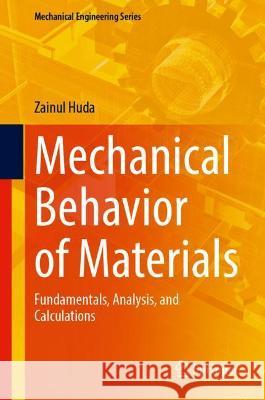Mechanical Behavior of Materials: Fundamentals, Analysis, and Calculations » książka
topmenu
Mechanical Behavior of Materials: Fundamentals, Analysis, and Calculations
ISBN-13: 9783030849269 / Angielski / Twarda / 2021 / 300 str.
Mechanical Behavior of Materials: Fundamentals, Analysis, and Calculations
ISBN-13: 9783030849269 / Angielski / Twarda / 2021 / 300 str.
cena 362,27
(netto: 345,02 VAT: 5%)
Najniższa cena z 30 dni: 346,96
(netto: 345,02 VAT: 5%)
Najniższa cena z 30 dni: 346,96
Termin realizacji zamówienia:
ok. 22 dni roboczych.
ok. 22 dni roboczych.
Darmowa dostawa!
Kategorie:
Kategorie BISAC:
Wydawca:
Springer
Seria wydawnicza:
Język:
Angielski
ISBN-13:
9783030849269
Rok wydania:
2021
Wydanie:
2022
Numer serii:
000287593
Ilość stron:
300
Waga:
0.63 kg
Wymiary:
23.88 x 16.76 x 2.03
Oprawa:
Twarda
Wolumenów:
01
Dodatkowe informacje:
Wydanie ilustrowane











